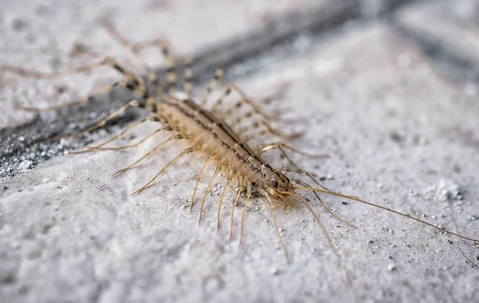Dealing with unwelcome house guests like centipedes can be a common challenge for homeowners. In Richmond, where these multi-legged critters thrive, effective centipede control in Richmond is key to maintaining a comfortable and pest-free home. This guide will provide comprehensive insights into managing and preventing centipede infestations.
Whether you're dealing with a current problem or looking to prevent future issues, our tips and strategies will help ensure your home remains centipede-free.
The Life Cycle Of Common Centipedes
Centipedes go through several developmental stages, and each requires different management strategies. The process begins with eggs, often hidden in damp, secluded areas of your home. When these eggs hatch, you might find baby centipedes in your house, which can be alarming but are a key indicator of an active infestation.
Baby centipedes, or nymphs, look similar to adults but are smaller and lack the full number of leg pairs. As they grow, they undergo a series of molts, shedding their exoskeleton to increase in size. Depending on the species and environmental conditions, this developmental phase can last several months to a few years.
During each molt, the centipede increases in size and leg count. This gradual growth process means that a centipede infestation can go unnoticed for quite some time, as the younger and smaller nymphs are less likely to be seen.
Why Centipedes Can Be A Menace To Have Around Your Home
A huge centipede infestation can be more than just a nuisance; it often signals underlying issues in your home. Centipedes prefer moist and dark environments, so their presence in large numbers may indicate problems like leaks or poor ventilation, potentially leading to mold growth and attracting other pests.
While centipedes generally pose little harm to humans, their unsettling appearance and potential for rare bites can be distressing, especially in a significant infestation. Furthermore, their presence suggests a larger pest issue, as they feed on other insects.
Natural Ways To Prevent Centipedes Around The House
Combating centipedes in your home can sometimes require harsh measures. Instead, natural house centipede repellent strategies can be both effective and safe. You can use several simple, eco-friendly techniques to deter these pests.
Essential oils are a great natural repellent. Peppermint, tea tree, and eucalyptus oils have strong scents that centipedes find unpleasant. Mix a few drops of these oils with water and a small amount of dish soap to create a repellent spray. Apply this mixture around potential entry points and in areas like basements and bathrooms, where centipedes congregate.
Additionally, reducing moisture in your home is key. Centipedes prefer damp environments, so using dehumidifiers and fixing leaks can make your home less inviting. Regular cleaning and reducing clutter, particularly in dark and moist areas, also limit the spaces for centipedes to reside and multiply. Implementing these natural methods can effectively decrease the chances of an infestation of different kinds of centipedes, helping to keep your home comfortable and free of pests.
Call In The Pros For Total Centipede Elimination
When natural remedies fail to manage a centipede issue, it's time to turn to the experts. Here's why Go-Forth Home Services should be your choice:
- Expertise: Our team has the training to handle various types of centipedes effectively.
- Efficiency: We use advanced methods for prompt and thorough centipede elimination.
- Safety: Our treatments are safe for your family and pets.
Go-Forth Home Services offers a reliable and professional solution for those dealing with pest control issues in Richmond. Don't let centipedes take over your home; contact us today for expert pest control services and enjoy a centipede-free living space.

